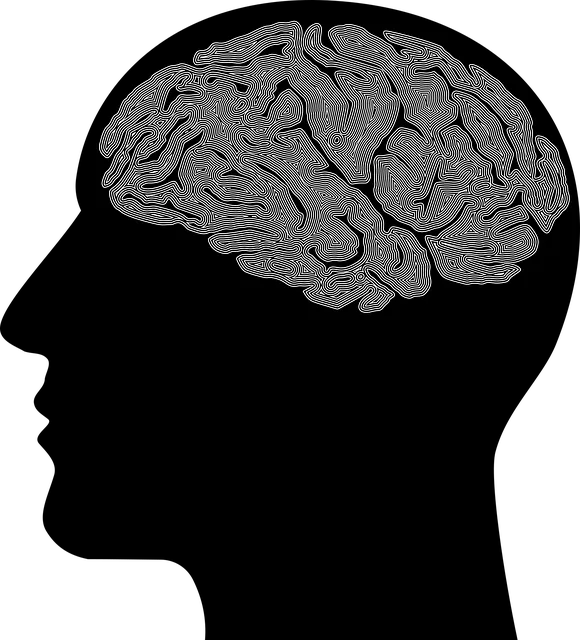Mental health diagnosis accuracy is a significant challenge for healthcare systems like Kaiser Permanente in Castle Rock, where high demand and growing recognition of its importance underscore the need for precise evaluations. Misdiagnosis or delays can lead to ineffective treatment plans and worsening symptoms. Kaiser Permanente's Castle Rock Initiative addresses this through advanced training, evidence-based practices, and increased access to resources focusing on diagnosis and emotional healing. The program includes improved clinical training, standardized assessment methods, advanced technologies, and tailored mental health education programs to reduce misdiagnosis rates and improve patient outcomes. By prioritizing accurate diagnoses and personalized treatment plans, Kaiser Permanente in Castle Rock aims to enhance overall well-being for its patients.
Mental illness diagnosis accuracy is a critical issue, with significant implications for patient care and well-being. This article explores the challenges and innovative efforts to improve diagnostic reliability, focusing on Kaiser Permanente’s groundbreaking work. We delve into their Castle Rock Initiative, an approach that leverages data analytics and clinical expertise to enhance mental health diagnosis. By examining these strategies, we highlight how accurate diagnoses can transform patient outcomes at Kaiser Permanente and beyond.
- Understanding the Challenge: Mental Health Diagnosis Accuracy
- Kaiser Permanente's Approach: The Castle Rock Initiative
- Innovative Strategies for Improving Diagnostic Reliability
- Enhancing Patient Care: The Impact of Accurate Diagnoses at Kaiser Permanente
Understanding the Challenge: Mental Health Diagnosis Accuracy

Mental health diagnosis accuracy is a complex challenge within healthcare systems, including Kaiser Permanente mental health services in Castle Rock. With increasing demand for mental health support and a growing recognition of its importance to overall well-being, ensuring precise diagnoses is more critical than ever. Misdiagnosis or delayed diagnosis can have severe consequences for individuals, leading to unnecessary suffering, inappropriate treatment plans, and a potential exacerbation of symptoms.
This issue stems from the multifaceted nature of mental health conditions, which often present with overlapping symptoms and varied expressions across different demographics. The complexity is further compounded by individual differences in experiences, cultural factors influencing expression, and comorbidities, making it a challenging task for healthcare providers to pinpoint specific disorders accurately on the first attempt. Enhancing diagnosis accuracy demands a multifaceted approach involving advanced training, evidence-based practices, and increased access to resources aimed at improving mental health awareness and stress reduction methods, ultimately contributing to effective anxiety relief strategies.
Kaiser Permanente's Approach: The Castle Rock Initiative

Kaiser Permanente, a leading healthcare organization, has taken significant strides towards enhancing mental health diagnosis accuracy with its Castle Rock Initiative. This pioneering program focuses on improving care by integrating evidence-based practices and fostering resilience building within their patient population. Through this initiative, Kaiser Permanente aims to not only diagnose but also support emotional healing processes among individuals struggling with various mental health conditions.
The Castle Rock Approach involves a multi-faceted strategy that includes enhancing clinical training for healthcare providers, implementing advanced assessment tools, and promoting conflict resolution techniques. By emphasizing these aspects, Kaiser Permanente strives to reduce misdiagnoses and improve patient outcomes. This holistic effort underscores the organization’s commitment to revolutionizing mental health care, ensuring that individuals receive accurate evaluations and effective interventions tailored to their unique needs.
Innovative Strategies for Improving Diagnostic Reliability

Mental illness diagnosis accuracy is a complex issue that requires innovative strategies to improve reliability. Organizations like Kaiser Permanente, with their mental health services in Castle Rock, are at the forefront of implementing new approaches. One such strategy involves enhancing diagnostic tools and criteria through rigorous research and collaboration with leading psychiatrists and psychologists. By standardizing assessment methods and integrating advanced technologies, healthcare providers can achieve greater consistency and accuracy.
Additionally, Kaiser Permanente focuses on Mental Health Education Programs Design tailored for their community. Offering Stress Management Workshops Organization and Burnout Prevention Strategies for Healthcare Providers not only equips professionals with the latest knowledge but also fosters a culture of continuous learning. These initiatives aim to reduce misdiagnosis rates and improve patient outcomes by ensuring healthcare providers are equipped to recognize subtle symptoms and make informed decisions, ultimately enhancing the reliability and effectiveness of mental health care in Castle Rock.
Enhancing Patient Care: The Impact of Accurate Diagnoses at Kaiser Permanente

At Kaiser Permanente, enhancing patient care through accurate mental health diagnoses is a top priority. The organization recognizes that precise evaluations are pivotal in managing and treating various mental illnesses effectively. By focusing on this aspect, Kaiser Permanente aims to significantly improve patient outcomes and overall well-being for individuals in Castle Rock and beyond.
Accurate diagnoses empower healthcare professionals to tailor treatment plans to each patient’s unique needs. This personalized approach includes evidence-based treatments such as Stress Management Workshops Organization guidance, Mental Wellness Journaling Exercise, and Confidence Boosting activities. Such initiatives not only improve symptoms but also foster long-term mental wellness, ensuring that patients receive the comprehensive care they deserve.
Mental illness diagnosis accuracy is a critical aspect of patient care, and organizations like Kaiser Permanente are leading the way in improving reliability. The Castle Rock Initiative by Kaiser Permanente demonstrates a comprehensive approach to tackling this challenge, utilizing data-driven strategies and innovative tools. By focusing on education, standardized protocols, and advanced technologies, they’ve seen significant improvements in diagnostic accuracy, ultimately enhancing patient outcomes. This commitment to excellence showcases how dedicated efforts can revolutionize mental health care, ensuring folks receive the appropriate support and treatment for their unique needs.






